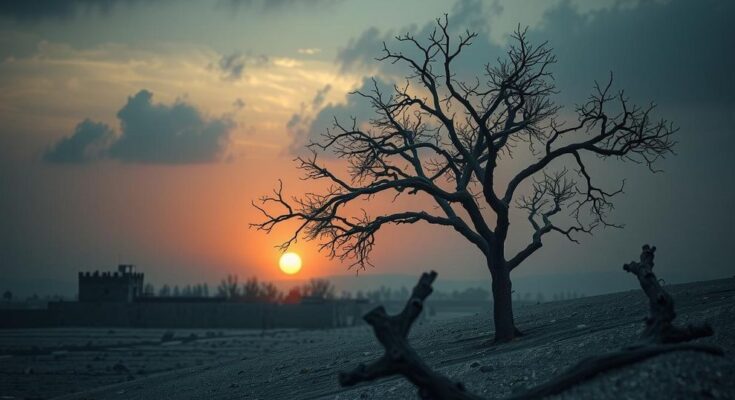The UN human rights chief, Volker Türk, has raised alarming concerns about escalating violence in the eastern Democratic Republic of the Congo (DRC), fueled by the Rwanda-backed M23 offensive. Speaking at the Human Rights Council in Geneva, he warned that if international action is not taken, the situation may deteriorate further, impacting not only local citizens but also neighboring regions. Since January 26, violence has surged, with nearly 3,000 fatalities and thousands injured due to M23 assaults in densely populated areas, signaling a dire need for intervention.
As armed conflict rages in the mineral-rich provinces of North Kivu and South Kivu, hundreds of thousands have been displaced from their homes. The Tutsi-dominated M23 has captured significant territories, including areas near Goma, intensifying the humanitarian crisis. A draft resolution was discussed at the Council condemning Rwanda’s military backing of M23 and demanding an immediate halt to their advances to permit essential humanitarian access.
In distressing developments, two hospitals in Goma were bombed on January 27, resulting in numerous casualties among patients. A prison break led to horrific reports of 165 female inmates being raped, with many perishing in a suspicious fire. Türk expressed horror over the widespread sexual violence manifesting in the conflict, predicting an escalation of such atrocities in the turmoil-ridden eastern DRC.
Bintou Keita, the UN peacekeeping chief, corroborated these grave concerns, describing the situation as catastrophic. She lamented that dead bodies are visible in Goma, while youth face forced recruitment and human rights advocates are under dire threat. Keita emphasized the urgent need for humanitarian support to combat rising health risks and social disruption, including outbreaks of cholera and violence against women and children.
Patrick Muyaya Katembwe, DRC’s Minister of Communications, criticized ongoing support from nations like Rwanda for armed factions, linking it to three decades of violence driven by the desire to exploit the DRC’s rich mineral resources. In contrast, Rwanda’s Ambassador, James Ngango, countered these claims, alleging threats against Rwanda from a coalition supported by Kinshasa, warning of imminent attacks with heavy military weaponry positioned near their border.
In a call for comprehensive international involvement to resolve the ongoing crisis, Türk underscored the broader implications of the conflict, highlighting the global economies reliant on minerals sourced from eastern DRC. He reminded the Council of our shared responsibility in addressing the suffering of the local population, as consumer demand fuels the violence in this strategically significant region.
Volker Türk, the UN human rights chief, has warned of a worsening humanitarian crisis in eastern DRC due to the Rwanda-backed M23 offensive, where thousands have died and many displaced. The UN calls for immediate international action to halt violence and ensure humanitarian assistance, while leaders from DRC and Rwanda exchange accusations regarding the conflict’s roots. Acknowledging global consumer reliance on DRC’s minerals, Türk emphasized the intertwined nature of local suffering and international economic interests.
The escalating conflict in the eastern DRC, driven by the M23 offensive and exacerbated by international complicity, calls for immediate global attention and action. With ongoing violence resulting in thousands of deaths and displacements, urgent humanitarian aid is crucial to avert a deeper crisis. The international community must recognize its role in the region’s turmoil and work collectively to restore peace and stability.
Original Source: news.un.org



